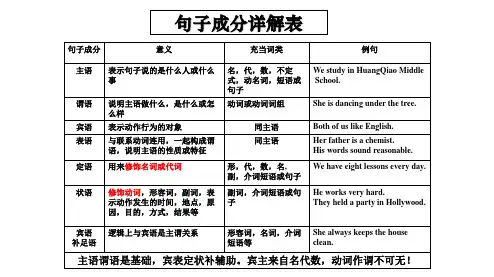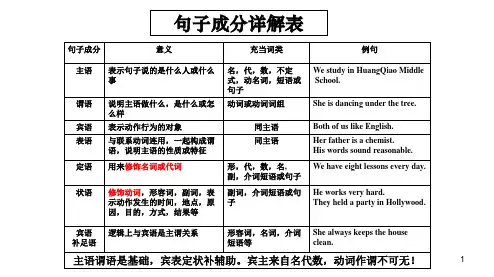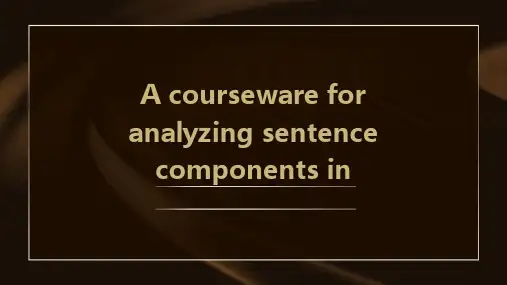• I waited to see you. • He often went to school by bus. • His parents died, leaving him an orphan. • Please call me if it is necessary. • This book is very interestin+感官系动词: sound, look, feel, smell, taste, remain...系动词不用于被动语态。
It sounds a good idea. Tom looks thin. The dress feels very soft. Now I feel tired. The food smells delicious. The food tastes good. The door remains open.
情态动词:辅助动词,主要用来表达说 话人的情感、态度或语气,同时也可以 表示可能性。
常见的情态动词: can(could), may(might), must, shall(should), will(would), ought t, dare, need...
英语中按动词后可否直接跟宾语,分成不及物动 词与和及物动词。 及物动词(vt.) : 及物动词后必须跟有动作的对象 (即宾语),并且可直接跟宾语。 如: He reached Paris .
初中英语 句子成分分析
㈠主语(subject)常位于句首动词前, 句子说明的人或事物。
The sun rises in the east(. 名词) Twenty years is a short time in history(. 数词) The poor are now living in the shelter. (名词化的形容词)








